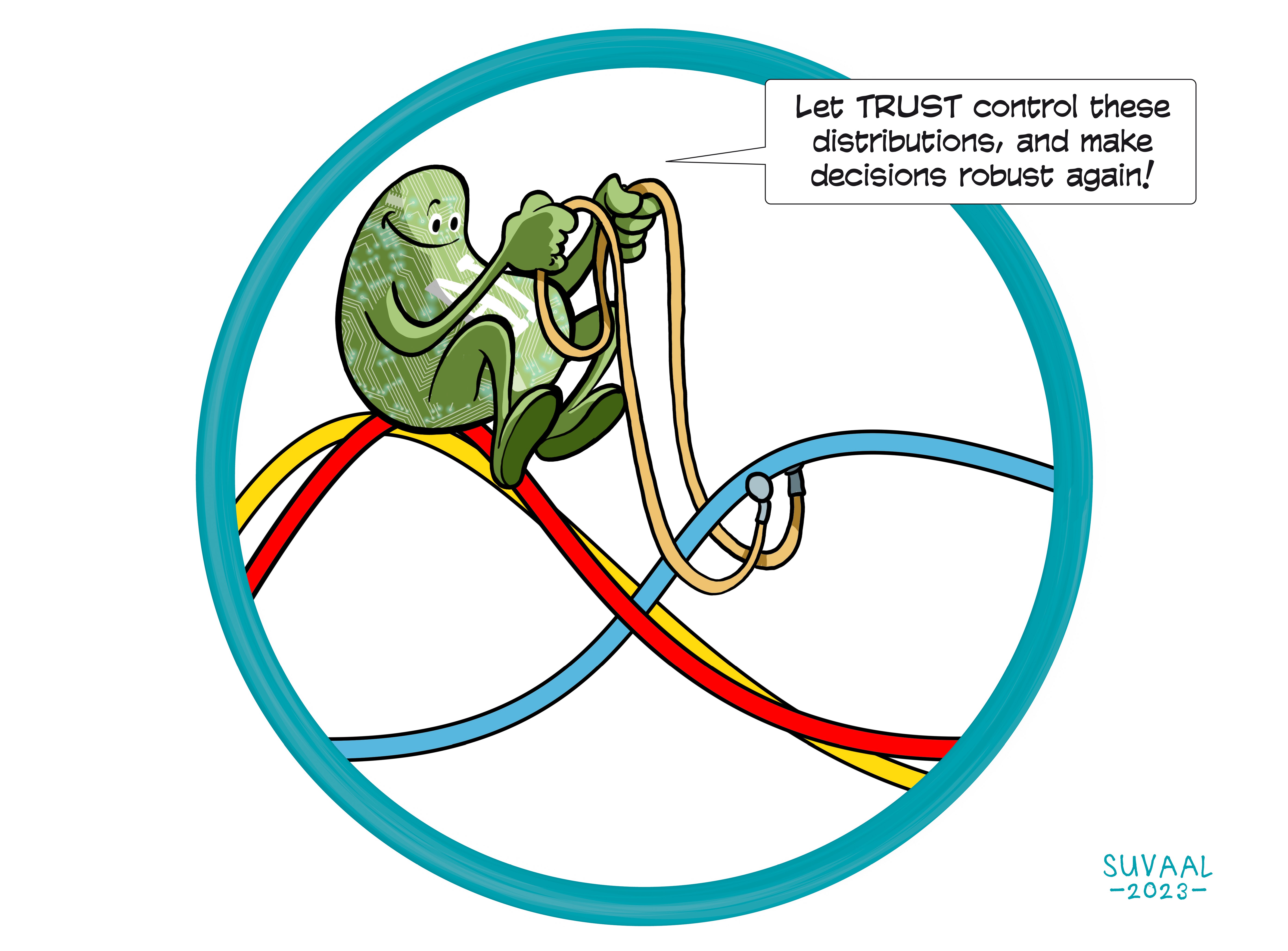Control without Trust: A Distributionally Robust Approach
Research Themes: Software Technology & Intellligent Systems


A TRL is a measure to indicate the matureness of a developing technology. When an innovative idea is discovered it is often not directly suitable for application. Usually such novel idea is subjected to further experimentation, testing and prototyping before it can be implemented. The image below shows how to read TRL’s to categorise the innovative ideas.
Summary of the project
One of the typical shortcomings of AI-based algorithms is a possible “shift” between the distribution generating the training dataset and the one based on which the outcome performance will be measured. This shift may have different root causes, ranging from a lack of rich (large enough) training datasets to dealing with a time-varying and dynamic environment. Important examples falling into this category are the perception and control of autonomous vehicles or the operation of transportation systems. In each of these examples, the dynamic nature of the environment often deteriorates the real-time performance of the intended decision. This project opts to alleviate this effect by utilizing tools from the modern field of distributionally robust optimization (also abbreviated as DRO).
What's next?
One of the challenging next steps is to have the working algorithm operate in real-time and dynamic environment. The current literature primarily focuses on developing tools that work in an offline setting. That is, given a fixed training dataset, we would aim to make a desired decision in a static condition. Such a decision may be a detection task in the vehicle perception system or an optimal schedule for a large-scale transportation system.
Another desired feature that we should consider in the next step is to make sure that the designed AI algorithms can be implemented on simple hardware and do not require sophisticated, fragile, and (super) powerful processors (computing devices).
With or Into AI?
Into
Dr. Peyman Mohajerin Esfahani
Faculties involved
- 3mE
Additional information
Links to other information about the project that you would like to share online:
- https://www.tudelft.nl/en/2020/3me/august/erc-starting-grant-for-peyman-mohajerin-esfahani/
- https://www.dcsc.tudelft.nl/~mohajerin/
Some links to the relevant master projects:
